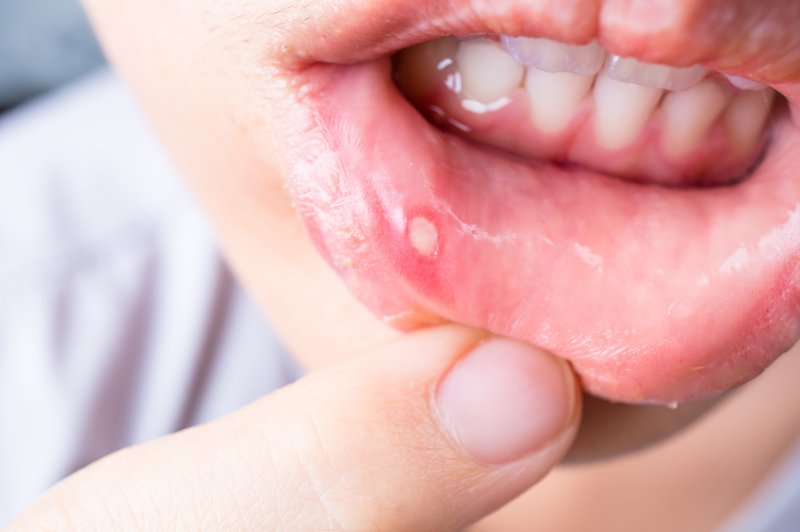What are the Causes of Canker & Mouth Sores?
July 14, 2022

Some oral health issues are less straightforward than others. After all, not all of them can be traced to tooth decay or gum disease. This truth especially applies, however, to canker and cold sores. You may not know the proper treatment response if and when you get them. Thankfully, your local dentist is here to help. Read on to learn the causes and solutions for these two mouth sores from Wethersfield dentists.
Canker Sores
You may have a canker sore if the affected area is inside your mouth. In that case, you should consider the following:
Traits
Canker sores are oval in shape and usually appear white with a red border. You can find them on the gums, inner cheeks, tongue, or soft palate. You may experience a burning feeling before they appear.
Cause(s)
Some experts believe immune system problems, bacteria, or viruses lead to cold sores. Otherwise, the cause for them is still unknown.
Factors such as stress, allergies, smoking, and vitamin deficiencies may also play a role.
Treatment
Normally, canker sores don’t need treatment and just disappear on their own. Still, you can get help for larger or more painful ones. Consider these:
- Over-the-counter creams and gels, especially those with benzocaine and hydrogen peroxide, could relieve pain.
- Prescription mouthwashes with dexamethasone may numb the sore.
- Oral medications can also help.
- You could do cautery as a last resort, using a chemical or tool to destroy or burn the sore.
Cold Sores
Unlike canker sores, cold sores tend to appear around the lips. You can know for sure whether you have one, though, by reading over the items below:
Traits
Cold sores are fluid-filled blisters that group in patches around the lips. Those who get them may also experience burning or tingling, a sore throat, fever, headaches, or swollen lymph nodes.
Cause(s)
This sore is only caused by the HSV-1 strain of herpes. The latter virus spreads through sharing utensils and toothbrushes or kissing.
Once you’ve had a herpes infection, the virus lies dormant in your skin’s nerve cells and may emerge later as a cold sore.
Treatment
Cold sores typically go away on their own within a few weeks of forming. As for ways to ease symptoms and speed up healing, you can use:
- Over-the-counter creams with lidocaine or benzocaine for pain
- Other creams with docosanol, which may shorten your outbreak
- Prescription antiviral drugs
As you can see, mouth sores in Wethersfield can have distinct qualities. Still, contact your local dentist if you have one that’s huge, doesn’t heal after two weeks, or recurs frequently. They can give you more treatment options.
About the Author
Dr. Ukti Phadnis is a dentist based in Wethersfield, CT, having earned her DDM from the UConn School of Dental Medicine. Post-graduation, she’s attended many education courses on dental implants, TMJ therapy, cosmetic dentistry, and Invisalign. She specializes in preventive, cosmetic, and restorative dentistry to ensure patients receive beautiful and healthy smiles. Dr. Phadnis currently practices at Wethersfield Dental Group and can be reached at her website or by phone at (860)-400-3007.


